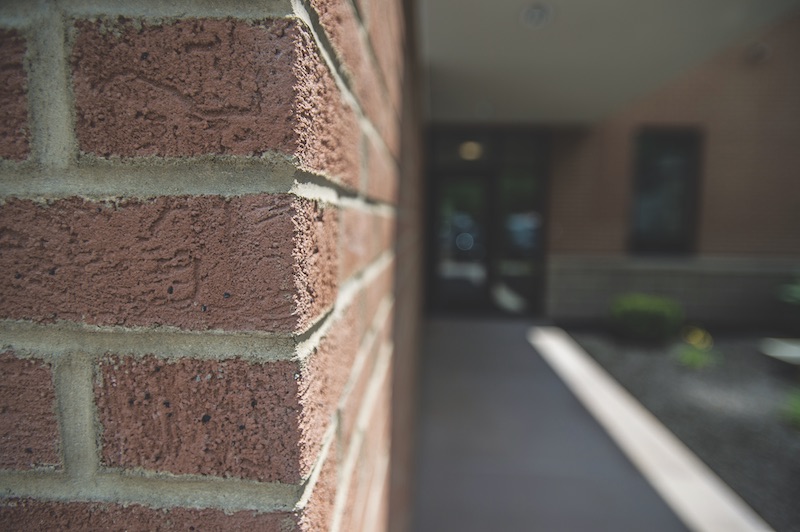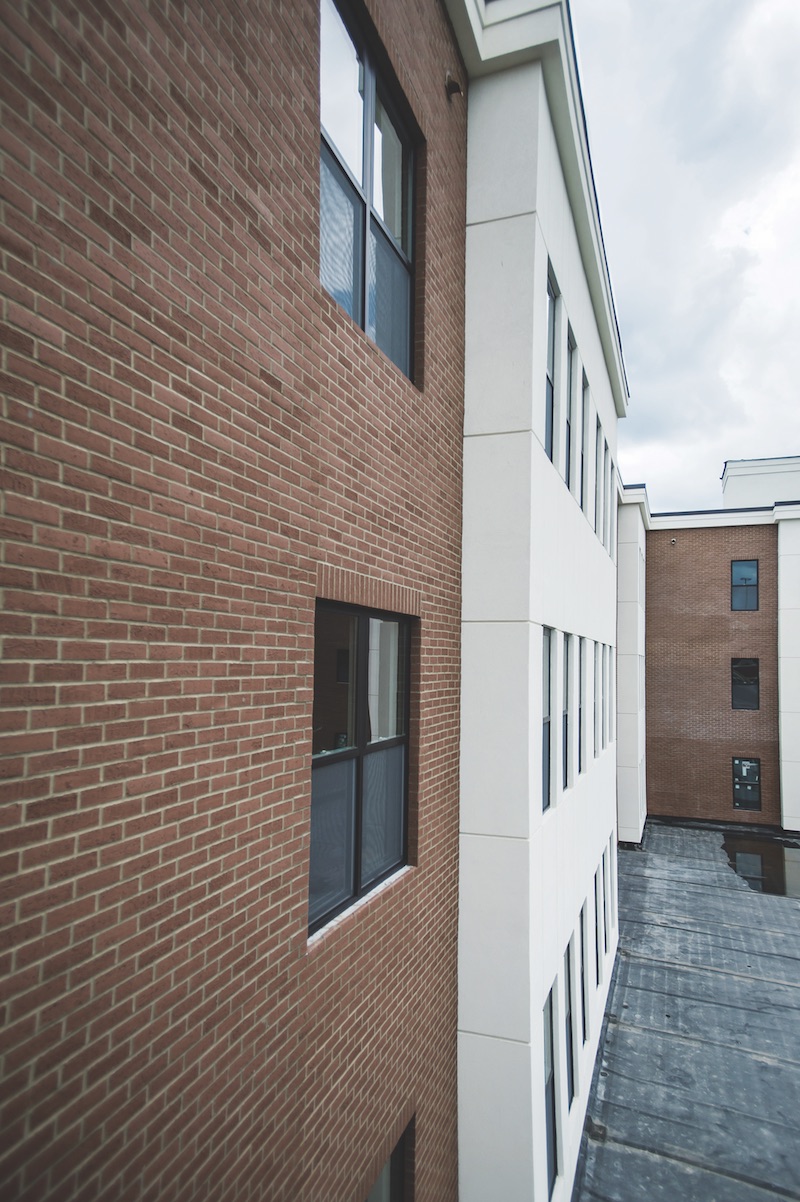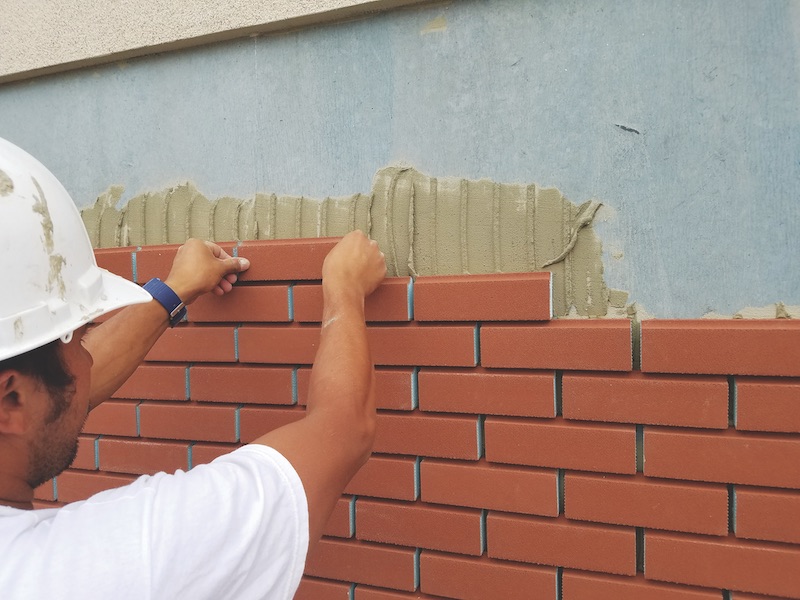While traditional clay brick continues to be a workhorse material in new construction projects, it is rarely used as a structural building component. When compared to alternative nonstructural veneer options, such as precast concrete and thin-brick systems, clay brick can be excessive in terms of weight and installation time.
Dryvit aims to rectify the peccadilloes of brick when used as a façade with the introduction of NewBrick, a lightweight insulated brick product that is coated with a specially formulated finish to mimic the look and feel of traditional brick. The thin-brick material is installed much like bathroom or kitchen tile. Each unit is adhesively attached to almost any substrate—concrete, masonry, air/water resistive barrier, EIFS. The joints are then sealed with conventional mortar to replicate the appearance of handlaid brick construction. An engineered drainage plane removes incidental moisture.
NewBrick is 12 times lighter than conventional four-inch face brick, weighing 2.45 lbs./sf compared to 29 lbs./sf. This weight savings means NewBrick is easier, safer, and faster to work with, especially for multistory construction, according to the maker. Building support systems, such as shelves, pans, and ties, are no longer needed, and the costs associated with transporting materials to the job site are decreased.
When used with Dryvit’s Outsulation system, NewBrick creates an energy-efficient wall assembly that meets IECC and Title 24 requirements for the use of continuous insulation.
Available in 16 standard colors, four blends, three textures, three effects, and four sizes: modular, utility, economy, and norman. A full line of corner, end, edge cap, and flat brick units are also available.
 Courtesy of Dryvit.
Courtesy of Dryvit.
 An office building in Schenectady, N.Y., was one of the first NewBrick installations. Courtesy of Dryvit.
An office building in Schenectady, N.Y., was one of the first NewBrick installations. Courtesy of Dryvit.
Related Stories
| Aug 11, 2010
'Flexible' building designed to physically respond to the environment
The ecoFLEX project, designed by a team from Shepley Bulfinch, has won a prestigious 2009 Unbuilt Architecture Design Award from the Boston Society of Architects. EcoFLEX features heat-sensitive assemblies composed of a series of bi-material strips. The assemblies’ form modulate with the temperature to create varying levels of shading and wind shielding, flexing when heated to block sunlight and contracting when cooled to allow breezes to pass through the screen.
| Aug 11, 2010
New book provides energy efficiency guidance for hotels
Recommendations on achieving 30% energy savings over minimum code requirements are contained in the newly published Advanced Energy Design Guide for Highway Lodging. The energy savings guidance for design of new hotels provides a first step toward achieving a net-zero-energy building.
| Aug 11, 2010
Pella Corporation ranks highest in customer satisfaction
Pella Corporation has earned the prestigious J.D. Power and Associates award for “Highest in Customer Satisfaction among Window and Patio Door Manufacturers” for the third year in a row.
| Aug 11, 2010
Perkins+Will master plans Vedanta University teaching hospital in India
Working together with the Anil Agarwal Foundation, Perkins+Will developed the master plan for the Medical Precinct of a new teaching hospital in a remote section of Puri, Orissa, India. The hospital is part of an ambitious plan to develop this rural area into a global center of education and healthcare that would be on par with Harvard, Stanford, and Oxford.
| Aug 11, 2010
Burt Hill, HOK top BD+C's ranking of the nation's 100 largest university design firms
A ranking of the Top 100 University Design Firms based on Building Design+Construction's 2009 Giants 300 survey. For more Giants 300 rankings, visit http://www.BDCnetwork.com/Giants
| Aug 11, 2010
PBK, DLR Group among nation's largest K-12 school design firms, according to BD+C's Giants 300 report
A ranking of the Top 75 K-12 School Design Firms based on Building Design+Construction's 2009 Giants 300 survey. For more Giants 300 rankings, visit http://www.BDCnetwork.com/Giants







